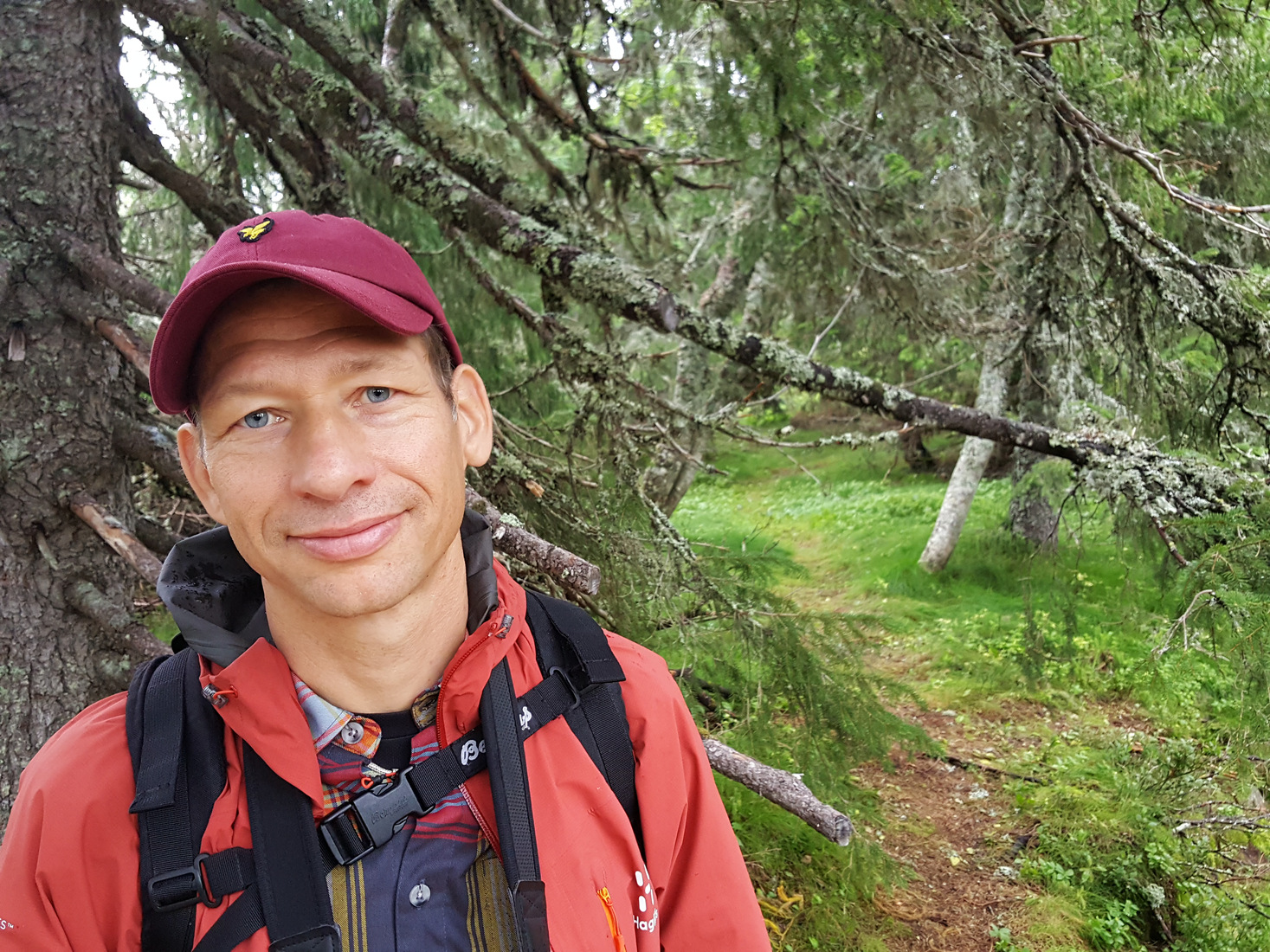It all started with the organisation Nature and Youth Sweden, where Daniel Thorell was active from the age of eight and throughout his upbringing. He says that was where he spent time with his friends.
– We were out in nature and did things almost all the time. We looked for frogs, watched birds, learned about different kinds of moss. It was great fun and it was very educational.
When he eventually graduated from high school, it seemed natural to study biology at university level.
– I didn’t reflect much on my choice of education. There was really only biology that interested me so the choice was very simple.
During this time, he also became interested in the world around him. Not least Russia, where he studied for a whole year. He also took a year off in Lofoten in Norway, and spent a summer in Poland and Latvia counting woodpeckers.
– It was really during that summer that I became interested in forest issues and after that I chose courses on forest and nature conservation.
Since 2004, Daniel Thorell has worked for the Swedish Forest Agency. His interest in the forests of the Baltic Sea region has been more than useful. For several years he worked with WAMBAF Water Management in Baltic Forests, with funding from the EU’s Interreg Baltic Sea Region programme. Through support from the Swedish Institute, the Swedish Forest Agency also ran a project in which Russia was involved in WAMBAF.
– We worked a lot with leakage of, among other things, methylmercury to waters. How do you clear a ditch? How do you manage the forest that grows closest to waters and lakes? That kind of questions.
Through WAMBAF, which ended in July 2021, several countries in the Baltic Sea region have been able to use maps developed by the Swedish University of Agricultural Sciences, SLU. These new maps are based on a laser scanning of the landscape. Therefore, they provide a very good picture of where the ground is moist or wet in an area or an entire country.
Another result is completely new insights about beavers.
– We had no plans to work with beavers, but there are a lot of beavers in the Baltics and we soon realized that it was a big deal there.
Daniel explains that the beaver is a key species in the landscape with a great impact on life in water and on land. Under certain circumstances, it can also have a negative impact on forestry and entail economic losses.
– I have somewhat unexpectedly learned a lot about beavers, including things that can be valuable for us in Sweden to consider. This is a good example of an topic where international exchange really leads to something bigger. We learn from each other all the time.
Last year, Daniel participated in the Swedish Institute’s Management Programme Northern and Eastern Europe, a leadership programme for entrepreneurs and leaders who work with sustainability in northern and eastern Europe. Now, he has a clear idea of what it is like to work together between the countries.
– There are of course cultural differences, but I have also been surprised by how much we have in common. Cooperation is often easier than you think. That is very rewarding.
Today, Daniel focuses primarily on the new project AdForClim, Adaptive Forestry for Water and Climate, which is funded by the Swedish Institute and where he is the project manager.
The goal is to work together across national borders to create more sustainable and varied forestry in the Baltic Sea region, to meet the climate changes. In the long run, the plan is to produce, among other things, so-called soil maps.
– In 15-20 years, our climate will be different. We are already working on it, but we need to see what methods are available in the other countries, and what we can apply. In short, we need to find more opportunities to handle challenges together, says Daniel Thorell.
Facts:
The AdForClim project is funded by the Swedish Institute through the funding scheme Seed funding for cooperation projects in the Baltic Sea region. The Swedish Institute provides seed funding for joint projects in which organisations based in Sweden can start and expand collaborations to meet transnational challenges together with organisations from the Baltic Sea region countries including Russia and the countries of the EU Eastern Partnership. A call is ongoing and closes 15 February 2022 at 15:00 (CET).
The leadership program Swedish Institute Management Program Northern and Eastern Europe opens for applications 13 January.
The WAMBAF-R project was funded under the funding scheme Third Country Participation.
